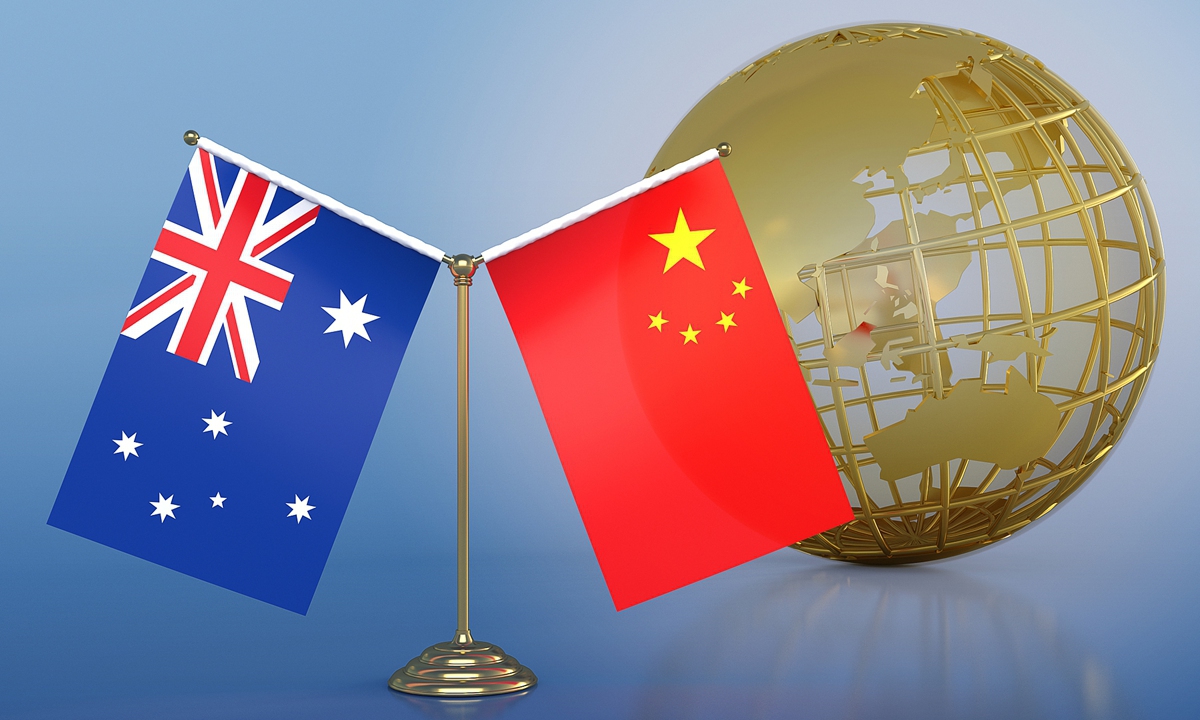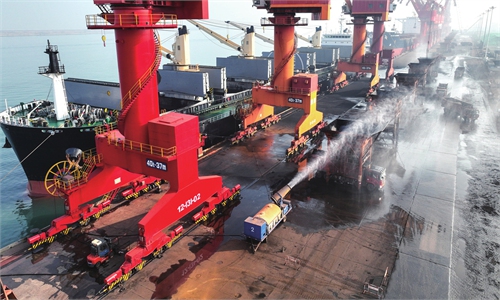China, Australia reach consensus on resolving disputes on wine, wind tower: Commerce Ministry

China Australia Photo: CFP
China, Australia has reached consensus on resolving their disputes on wine and wind towers under the WTO framework, China's Ministry of Commerce (MOFCOM) announced on Sunday.
The progress is another promising step for China-Australia relations, which will benefit the economy of both Australia and the whole Asia Pacific region, observers said, but they cautioned that as some Australia curbs on Chinese investment remain, more efforts need to be done to help improve bilateral ties.
China and Australia have conducted friendly consultations under the WTO framework governing disputes such as wine and wind towers that are of mutual concern, and they have reached consensus on properly resolving them, a MOFCOM spokesperson said in a statement published on Sunday.
Wind tower, or wind catcher, is a kind of traditional architectural element used to create cross ventilation and cooling in buildings.
"China and Australia are each other's important trading partners. We are willing to work with Australia to continue to meet each other halfway through dialogue and consultation and jointly promote the stable and healthy development of bilateral economic and trade relations," the MOFCOM spokesperson said.
"We're very confident that this will result in once again Australian wine, a great product, being able to go to China without the tariffs," Australian Prime Minister Anthony Albanese said at a press conference on Sunday. He added that this was "critical," as the wine industry had struggled to fill the gap left by China's business.
China will undertake a review of its wine tariffs which is expected to take five months, Albanese's office said on Sunday. During that period, Australia will suspend its WTO dispute over China's actions, according to an earlier report by Bloomberg.
China's wine market was Australia's most valuable prior to the implementation of duties, worth more than A$1 billion ($631.4 million) in 2018-19 and 2019-20, according to Australia's agriculture department.
It shows that trade disputes between China and Australia, as well as any disputes between other nations, can be resolved through fair negotiations within the framework of WTO agreements, based on principles of equality, mutual benefit, and fairness, Yu Lei, chief research fellow at the Research Center for Pacific Island Countries of Liaocheng University, told the Global Times on Sunday.
The economies of China and Australia, with a complementarity rate exceeding 80 percent, underscores the mutual benefits of equal cooperation, while "decoupling" would bring great harm to both, Yu said.
There have been positive signs between the two countries, including a high-level economic dialogue which resumed in May, and most recently, China announced an end to anti-dumping and anti-subsidy duties on Australia barley from August 5.
Bilateral trade volume is going up too lately, with the first nine months of 2023 witnessing a 10.2 percent year-on-year growth in bilateral trade.
The recovery of the bilateral relations is beneficial for the revival of supply chains, economic growth, and the rise in employment in both countries, as well as in the Asia-Pacific region, Yu said, adding that Australia has experienced soaring prices since the outbreak of the pandemic, with the costs of essential goods nearly doubling.
"The rekindling of economic ties between the two nations is advantageous for Australia to stabilize prices, improve quality of life, and also supports the upgrading of China's manufacturing sector," Yu said.
In hopes of making more progress, Albanese announced on Sunday that he will visit China from November 4 to 7, the first such visit by head of Australian government since 2016.
The potential visit is in no doubt a promising step for the two countries to rebuild trust especially as the Australian prime minister needs to resist pressure from anti-China forces at home and from the US, experts said. However they cautioned that the current recovery of relations might be "fragile," as its sustainability and strength depend on further efforts of Canberra to balance its political approach.
"The present Australian government needs to have the sufficient political wisdom to avoid repeating reckless and irrational anti-China moves of the previous administration, which has ruined bilateral ties and political trust," Zhang Hong, a close follower of China-Australia ties, told the Global Times on Sunday.
Yu pointed out that the so-called recovery in economic and trade relations between the two countries is primarily attributed to China's increased openness in its commodity and investment markets, whereas Australia continues to maintain substantial barriers to Chinese investment and market access for selected goods and services.
Moreover, the trend of Canberra "politicizing" and "securitizing" economic and trade issues between the two countries persists, posing a threat to maintaining stable relations that could lead to setbacks in bilateral cooperation, Yu added.



